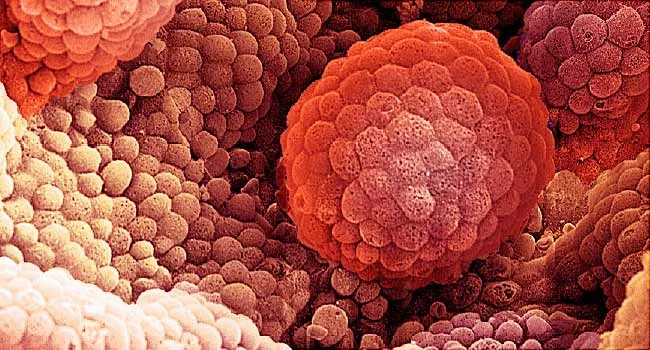Ovarian Cancer: Causes, Treatments, Prognosis and Prevention – Cancer of the Ovary
Ovarian cancer is cancer of the ovaries. The ovaries are part of our reproductive system and produce the hormones oestrogen and progesterone. When a woman is ovulating they release an egg into the fallopian tube every month. If it is not fertilized it is shed with the lining of the womb during menstruation.
During ovulation the ovary opens to let the egg out. This causes tiny tears on the lining, which our cells try to repair each month. Cancer can develop if this repair activity occurs too quickly – a growth of cells cluster, forming tumours on the ovary. The cells are behaving erratically and working against our DNA. This can be a result of genetics or linked to other factors such as lifestyle and environment.
Types of Ovarian Cancer
There are two main types:
- Epithelial is the most common, affecting the lining of the ovaries.
- Non-epithelial cancer starts in the cells of the ovaries.

Symptoms of Ovarian Cancer
In 2014 the Department of Health, cancer charities and doctors defined the key symptoms of ovarian cancer: –
- Persistent pelvic or stomach pains.
- Continual bloating and weight gain on the stomach.
- Problems eating and getting full quickly.
If you are experiencing any of these symptoms on a daily basis and you’ve noticed other changes such as tiredness, painful intercourse, abnormal bleeding or changes to your bowel habits, consult your GP.
Causes of Ovarian Cancer
Research is ongoing as to exact causes; however, certain factors increase the risk:
- In around 5% of cases it is hereditary.
- Endometriosis – in around 1/3 of cases.
- Early menstruation and late menopause – this is linked to damage to the ovary wall during ovulation. The more periods a woman has, the greater the risk of cell mutation.
- Ethnicity – research indicates women of Polish, Jewish, Icelandic or Pakistani descent are more at risk due to a faulty gene.
- Research is ongoing as to potential links with fertility treatment and HRT. One study found that long-term HRT users are 1.2 times more likely to develop ovarian cancer.
- Mutations in genes BRCA1 and BRCA2 have been linked to ovarian and breast cancer.
- It is most common in post-menopausal women.
Treatment of Ovarian Cancer
Ovarian cancer is staged and graded according to the aggression of the tumour and how far it has spread. Treatment is a combination of surgery, chemotherapy and radiotherapy. If it is caught early on (Stage 1: in the ovary only) surgery will be minimal and the prognosis for remission is excellent. If is has spread to other organs (stage 4) a hysterectomy or oophrectomy may be required to ‘debulk’ as much of the cancer as possible. Gene therapy and hormone therapy are currently in development.
Preventative Measures
Unlike cervical cancer, there is no national screening programme in place. A screening trial is currently underway and the results will be published in 2018. It is possible to be screened if you have a family history of ovarian cancer.
Pregnancy, breast feeding and taking the contraceptive pill can all reduce the risk. A 2015 study indicated a woman’s chances of developing ovarian cancer are significantly reduced if she takes the pill, with the effects lasting for up to 30 years after she stops taking it.
Cancer rates are higher in the west because obesity is more common and we eat a diet high in animal fats. Eat a low fat diet, which is rich in fruit and vegetables, maintain a healthy BMI and exercise regularly.